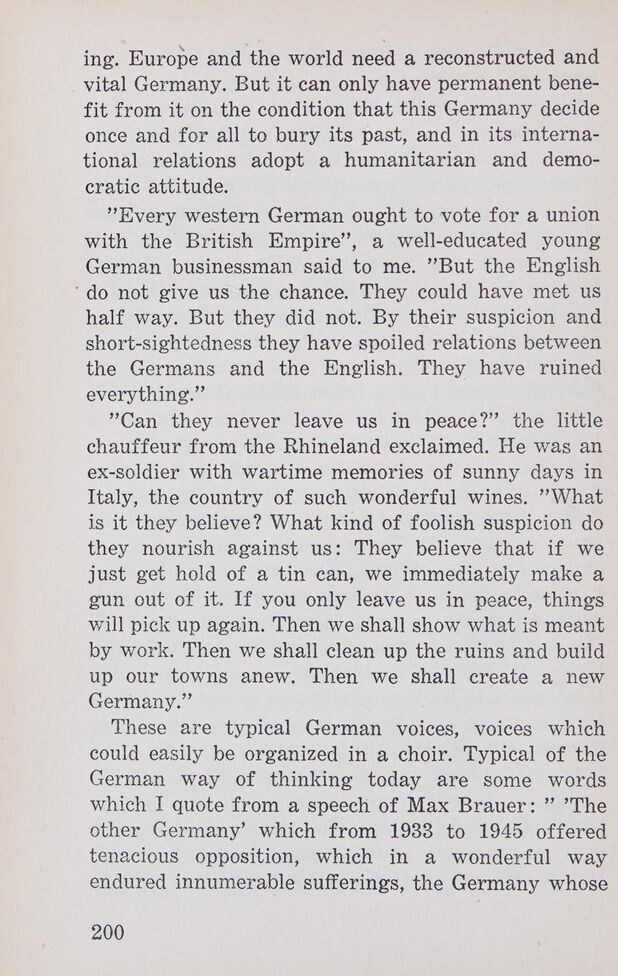
Full resolution (JPEG) - On this page / på denna sida - The German Problem

<< prev. page << föreg. sida << >> nästa sida >> next page >>
Below is the raw OCR text
from the above scanned image.
Do you see an error? Proofread the page now!
Här nedan syns maskintolkade texten från faksimilbilden ovan.
Ser du något fel? Korrekturläs sidan nu!
This page has never been proofread. / Denna sida har aldrig korrekturlästs.
ing. Europe and the world need a reconstructed and
vital Germany. But it can only have permanent
benefit from it on the condition that this Germany decide
once and for all to bury its past, and in its
international relations adopt a humanitarian and
democratic attitude.
”Every western German ought to vote for a union
with the British Empire”, a well-educated young
German businessman said to me. ”But the English
’ do not give us the chance. They could have met us
half way. But they did not. By their suspicion and
short-sightedness they have spoiled relations between
the Germans and the English. They have ruined
everything.”
”Can they never leave us in peace?” the little
chauffeur from the Rhineland exclaimed. He was an
ex-soldier with wartime memories of sunny days in
Italy, the country of such wonderful wines. ”What
is it they believe? What kind of foolish suspicion do
they nourish against us: They believe that if we
just get hold of a tin can, we immediately make a
gun out of it. If you only leave us in peace, things
will pick up again. Then we shall show what is meant
by work. Then we shall clean up the ruins and build
up our towns anew. Then we shall create a new
Germany.”
These are typical German voices, voices which
could easily be organized in a choir. Typical of the
German way of thinking today are some words
which I quote from a speech of Max Brauer: ” ’The
other Germany’ which from 1933 to 1945 offered
tenacious opposition, which in a wonderful way
endured innumerable sufferings, the Germany whose
200
<< prev. page << föreg. sida << >> nästa sida >> next page >>